
Ukraine: ‘Risky maneuver’ completed in Mariupol

It’s 3 p.m. in Kyiv. Here’s what you need to know
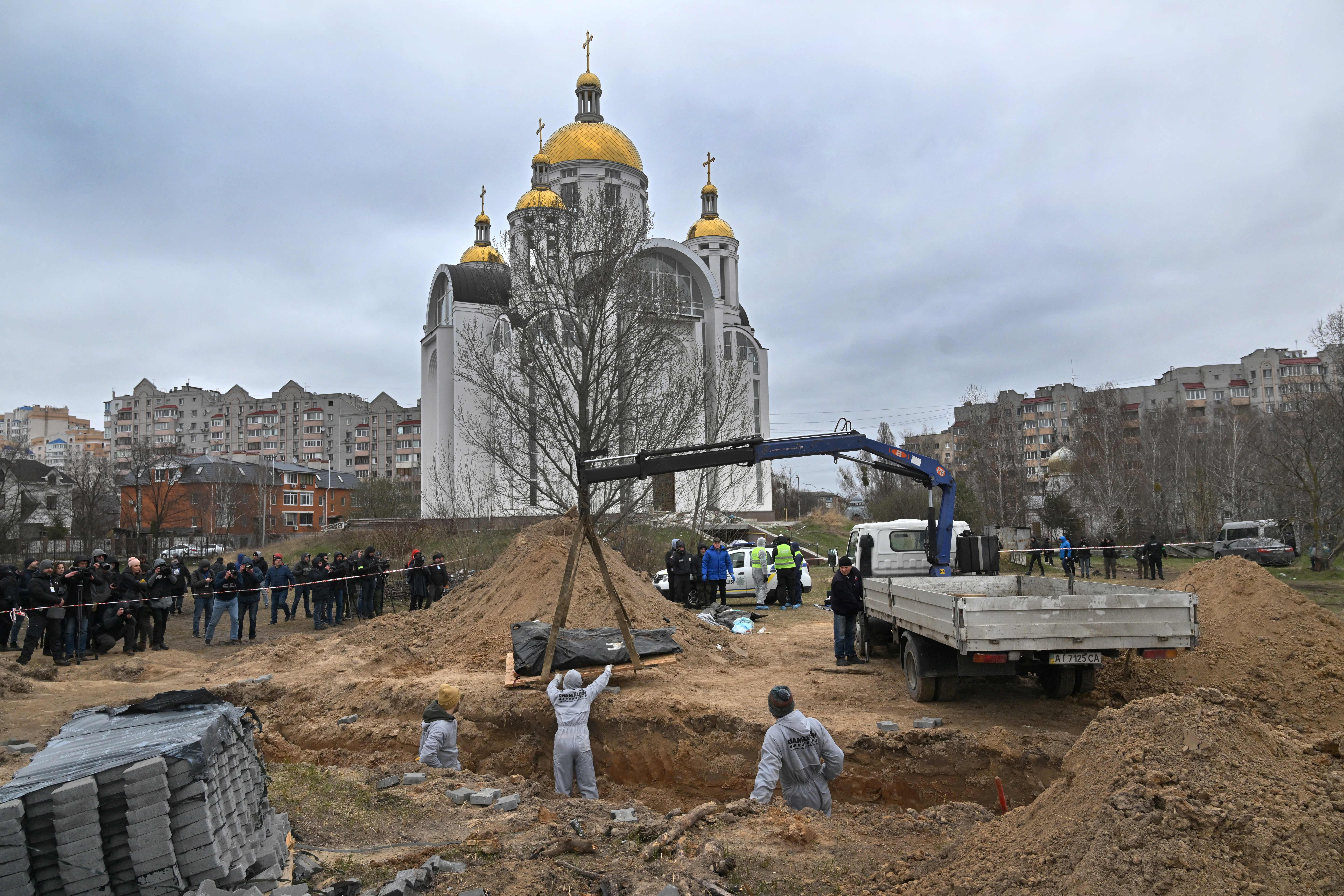
Finnish Prime Minister Sanna Marin said the country is expected to decide within weeks rather than months whether it will apply for membership to NATO, while her Swedish counterpart Magdalena Andersson said her country was still weighing up the decision.
The decision could be a significant blow to Russian President Vladimir Putin, whose war has united the West against Moscow in ways that seemed unimaginable in January.
Meanwhile, French President Emmanuel Macron declined to refer to Russian actions in Ukraine as “genocide,” saying: “I would be careful with such terms today because these two peoples [Russians and Ukrainians] are brothers.” His comment came the day after US President Joe Biden described the atrocities in Ukraine as “genocide” for the first time.
Ukrainian officials say nearly 200 children have been killed and more than 300 others injured since Russia’s invasion began.
Here are the latest developments on the war in Ukraine:
- Finland and Sweden to make NATO decision: Finland is expected to decide “within weeks” rather than months whether it will apply for membership to NATO, the Finnish Prime Minister said Wednesday. Speaking in Stockholm following a bilateral meeting with Swedish Prime Minister Magdalena Andersson, Sanna Marin said it would be best to coordinate with Sweden to make similar security decisions.
- Ukraine hails “risky maneuver” in Mariupol: A Ukrainian presidential adviser said that after a “risky maneuver” the last remaining defenders of the besieged port city of Mariupol have been able to join forces. Oleksiy Arestovych said the “units of the 36th Independent Marine Brigade broke through to [join] the Azov regiment,” consolidating Ukraine’s position against the Russian offensive.
- Questions over chemical weapon use: Ukrainian President Volodymyr Zelensky said he cannot say with certainty if chemical weapons were used in Mariupol. His comments follow unverified reports of a possible such strike in the city. The US and the UK said they were working to verify the details but have not confirmed their use.
- Biden labels atrocities “genocide”: The US President said Russian actions being uncovered in Ukraine qualify as genocide, a designation he’d previously avoided but said he now believes is warranted as scenes of devastation emerge from towns previously overrun by Russian troops. It was a dramatic rhetorical escalation in the US view of what is happening on the ground and garnered near-immediate praise from Zelensky. The US government rarely uses the term genocide.
- Macron declines to use term “genocide”: In an interview with public broadcaster France 2, the French President rejected the use of the term “genocide” to refer to Russian actions in Ukraine. “I want to continue to try, as much as I can, to stop this war and rebuild peace. I am not sure that an escalation of rhetoric serves that cause,” he said.
- Nearly 200 children killed in conflict: Some 191 children have been killed and 349 others injured in Ukraine since the start of the Russian invasion on February 24, Ukrainian prosecutors said in a news release on Wednesday. The United Nations said separately that at least 1,892 civilians had been killed and 2,558 injured since the war began.
- No evacuation routes opened: There will be no evacuation corridors for civilians in Ukraine on Wednesday, the country’s Deputy Prime Minister Iryna Vereshchuk said in a statement. Vereshchuk blamed Russian troops for creating a dangerous situation along the routes.
- Russia begins redeploying forces: Satellite images captured on Monday show Russian forces redeploying and moving into eastern Ukraine. The deployments consist of dozens of armored vehicles, troops with tents and support equipment, the images appear to show.
- European presidents to meet Zelensky: The presidents of the Baltic states and Poland are on their way to the Ukrainian capital, Kyiv, to meet with Zelensky.
- On the ground: The Ukrainian military reported heavy fighting in the southeastern region of Zaporizhzhia on Tuesday, saying a five-hour battle took place in the Polohy district as Ukrainian forces tried to liberate the area. Polohy is northeast of the Russian-occupied city of Melitopol. The Pentagon assesses that Mariupol remains contested amid Russia’s bombardment.
Decision on application for NATO membership likely to come “within weeks,” Finland PM says
From CNN’s Lindsay Isaac and Luke McGee
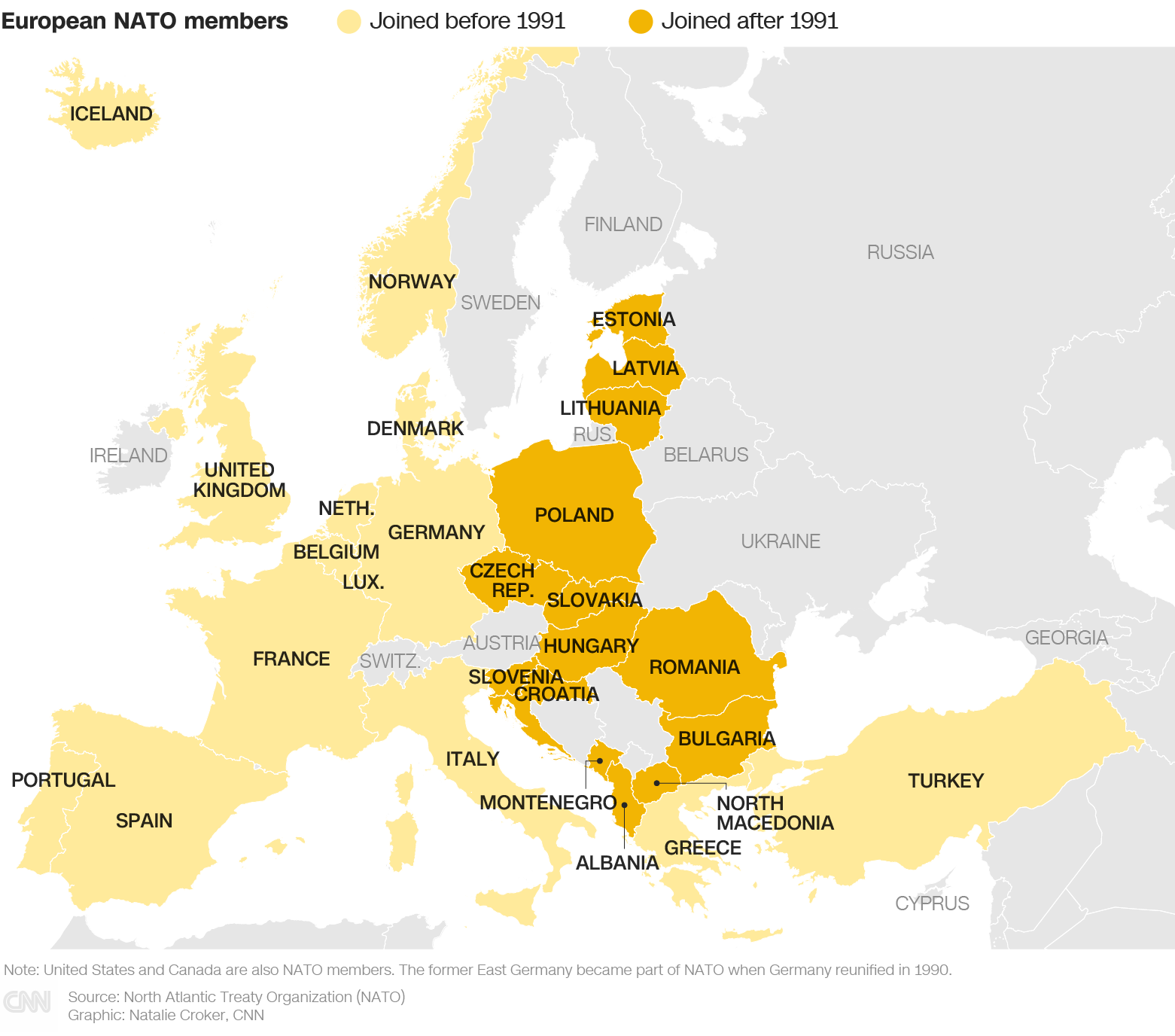
Finland is expected to decide within weeks rather than months whether it will apply for membership to NATO, the Finnish Prime Minister said Wednesday.
Speaking in Stockholm following a bilateral meeting with Swedish Prime Minister Magdalena Andersson, Sanna Marin said it would be best to coordinate with Sweden to make similar security decisions.
“We need to have a view on the future and we are using this time to analyze and also building common views on the future when it comes to security,” Marin said.
I won’t give any kind of timetable when we will make our decisions, but I think it will happen quite fast. Within weeks, not within months.”
The Finnish parliament on Wednesday received a white paper on changes to the nation’s security environment following its neighbor Russia’s attack on Ukraine. The report is expected to be signed off by lawmakers and made public later today.
Andersson didn’t go as far as Marin, saying Sweden was still weighing up the decision and pointing out that there are elections there in September.
Some background: When Russian President Vladimir Putin launched his invasion of Ukraine, his goals were clear. He wanted to bring his neighbor to heel, assert Russian authority in Eastern Europe and make the West think twice about expanding militarily and politically toward Russia’s borders.
But in one important respect, Putin’s plan appears to have failed: The war has united the West against Moscow in ways that seemed unimaginable in January.
Now, Finland and Sweden — nations that are officially non-aligned — are edging ever closer toward joining NATO, the US-led military alliance.
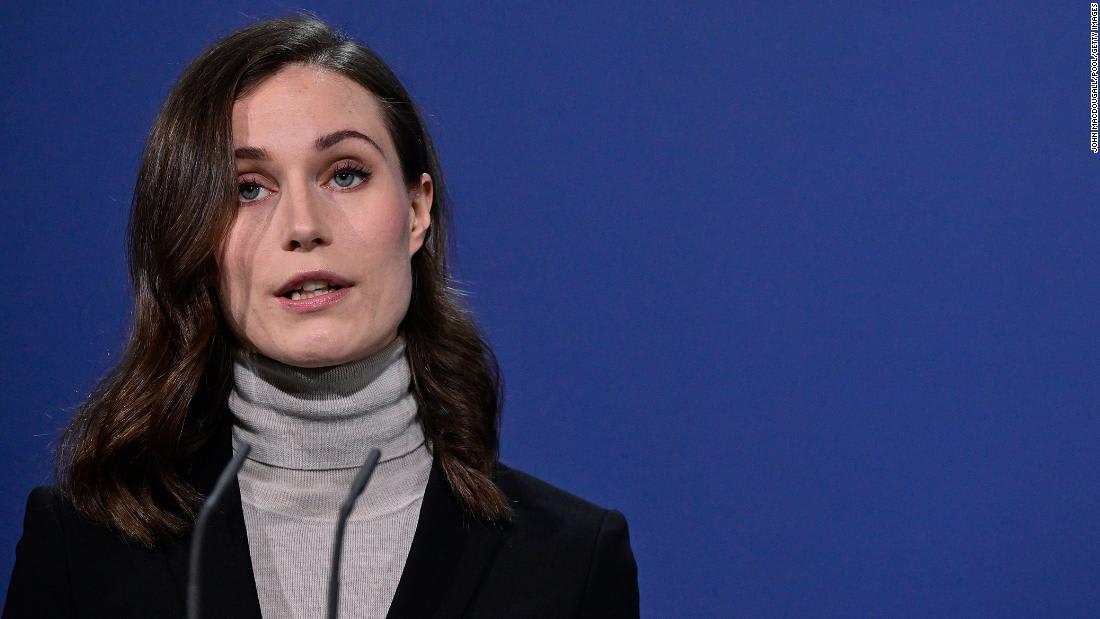
Video shows what appears to be cluster munition explosions in Kharkiv
From CNN’s Celine Alkhaldi
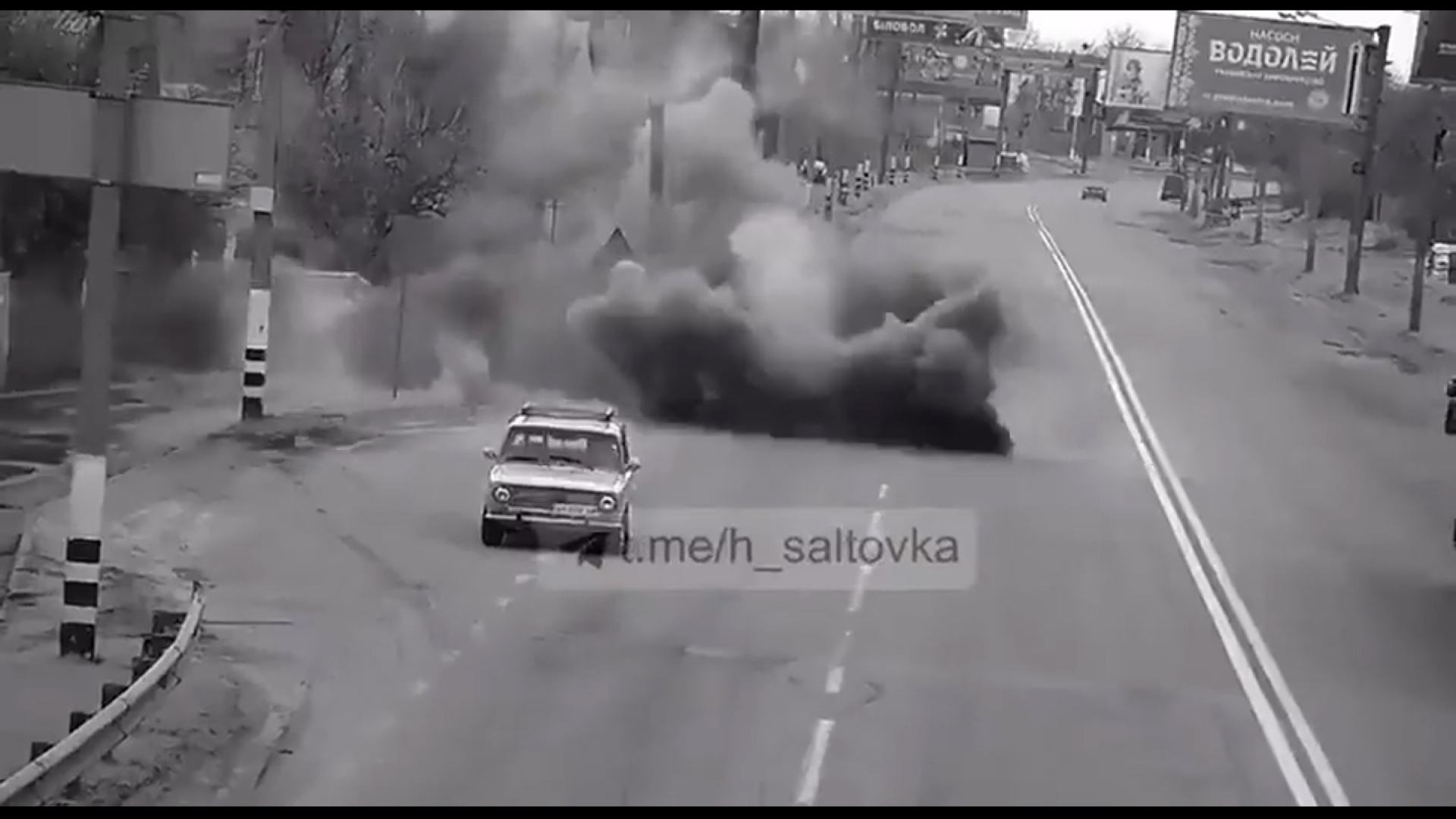
A video shared to social media on Sunday shows what appear to be explosions from cluster munitions in a civilian area in the Kharkiv region.
At least four explosions, seconds apart, can be seen spanning about 90 meters (98 yards) along a road in Pisuchyn. An aerially dispensed submunition is seen falling on the street moments after and causes another blast.
Russian forces have been accused of regularly using cluster munitions against civilian targets in Ukraine. Last week, the UN Human Rights Monitoring Mission in Ukraine said it had received credible allegations that Russian armed forces have used cluster munitions in populated areas at least 24 times.
A convention backed by more than 100 countries has banned the use of cluster munitions because of the widespread and indiscriminate damage they cause. Neither Russia nor Ukraine are state parties to the treaty, however.
“Cluster munitions pose an immediate threat to civilians during conflict by randomly scattering submunitions or bomblets over a wide area. They continue to pose a threat post-conflict by leaving remnants, including submunitions that fail to explode upon impact becoming de facto landmines,” according to Human Rights Watch.
Such attacks “may amount to war crimes,” UN human rights chief Michelle Bachelet told the UN Human Rights Council in Geneva.
Russian gas supply halt could cost Germany 220 billion euros, say leading German economic institutes
From CNN’s Chris Liakos
The German economy would take a big hit in the event of a Russian gas supply halt, German institutes have warned.
According to a joint economic forecast by five leading German economic research institutes, in the event of an immediate interruption to Russian gas supplies, a total of 220 billion euros ($238 billion) in German economic output would be at risk in both 2022 and 2023. This would be equivalent to more than 6.5% of Germany’s annual economic output.
“If gas supplies were to be cut off, the German economy would undergo a sharp recession,” said Stefan Kooths, vice president and research director for business cycles and growth at the Kiel Institute for the World Economy.
The institutes slashed GDP growth for 2022 to 2.7% from 4.8% due to the ongoing war in Ukraine and its economic ramifications and expect inflation to hit 6.1% in 2022, the highest figure in 40 years.
“In the event of an energy supply stop, it would even increase to 7.3 percent, a record-high in post-war Germany,” the press release reads.
At the end of March, Germany issued an “early warning” of possible natural gas shortages over a payments dispute with Russia that could lead to energy rationing, urging all consumers to reduce their usage as much as possible.
“The recovery process in the German economy is once again being delayed. The economic picture is shaped by opposing forces, all of which are driving up prices,” said Kooths.
The Joint Economic Forecast was prepared by the German Institute for Economic Research (DIW Berlin), the ifo Institute (Munich), the Kiel Institute for the World Economy (IfW Kiel), the Halle Institute for Economic Research (IWH), and RWI (Essen).
Ukraine says defenders of Mariupol consolidate, while Russia claims to take prisoners
From CNN’s Tim Lister, Maria Kostenko in Chernivtsi and Nathan Hodge in Lviv
Ukrainian presidential adviser Oleksiy Arestovych has has said that after a “risky maneuver” the last remaining defenders of the besieged port city of Mariupol have been able to join forces.
Arestovych said Wednesday that “in Mariupol, as a result of a risky maneuver, units of the 36th Independent Marine Brigade broke through to [join] the Azov regiment.”
Both units have been involved in a last-ditch attempt to resist a Russian offensive against the city that has lasted well over a month.
“This is what happens when officers do not lose their heads, but firmly maintain command and control of the troops,” Arestovych said.
CNN cannot independently confirm the details of the operation. Members of the Marine unit posted a video statement on Tuesday saying they would hold on “until the end,” despite being surrounded by Russian forces and running low on supplies.
On his Facebook account, Arestovych said that the Azov regiment had “received substantial reinforcements … the 36th brigade avoided defeat and received additional serious opportunities, in fact, gained a second chance.”
Arestovych claimed that “the defenders of the city, now together, seriously strengthened their defense area.”
The defenders of the city, where some 100,000 civilians remain trapped amid widespread devastation, have been fighting to hold parts of the port and Azovstal, a giant steel factory that lies on Mariupol’s eastern outskirts.
The Russian military claimed in a statement Wednesday that 1,026 Ukrainian Marines — including 162 officers and 47 women servicemembers — had surrendered in the vicinity of the Ilyich Iron and Steel Works in Mariupol, a claim that could not be verified.
Russia has focused an intense propaganda effort around the battle for Mariupol, claiming to have seized key positions in the city, even as Ukrainian forces have continued to hold out.
Some background: Independent analysis of the situation in Mariupol on Sunday published by the Institute for the Study of War assessed that the defense of Mariupol had reached a critical stage.
Ukrainian President Volodymyr Zelensky has said “tens of thousands” have died in Mariupol, a figure that cannot be independently verified.
UN records 1,892 civilian deaths in Ukraine since beginning of war
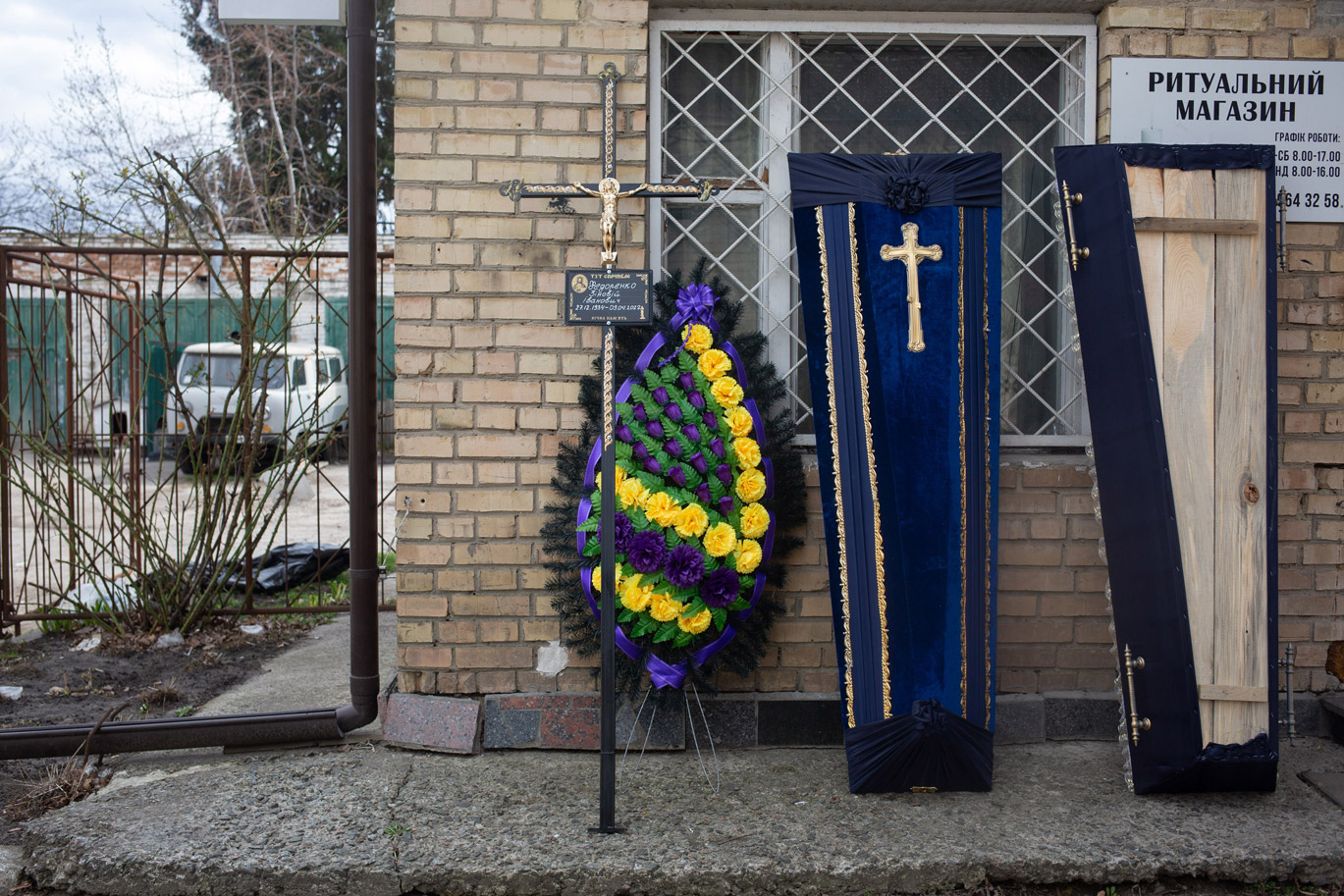
At least 1,892 civilians have been killed and 2,558 injured since the war in Ukraine started in February, according to the United Nations.
The number of recorded deaths includes 478 men, 308 women, 30 girls, and 52 boys, as well as 71 children and 953 adults whose sex is yet unknown, the Office of the UN High Commissioner for Human Rights (OHCHR) said in a statement Tuesday.
“Most of the civilian casualties recorded were caused by the use of explosive weapons with a wide impact area, including shelling from heavy artillery and multiple launch rocket systems, and missile and air strikes,” it said.
The actual casualty figures could be considerably higher due to a delay in reports from some locations, the OHCHR added. These include areas such as the besieged southeastern city of Mariupol, where “figures are being further corroborated.”
The Prosecutor General’s Office of Ukraine has reported a higher number of child fatalities. In a statement Wednesday, it said 191 children had been killed and more than 349 injured since the Russian invasion began.
It’s noon in Kyiv. Here’s what you need to know
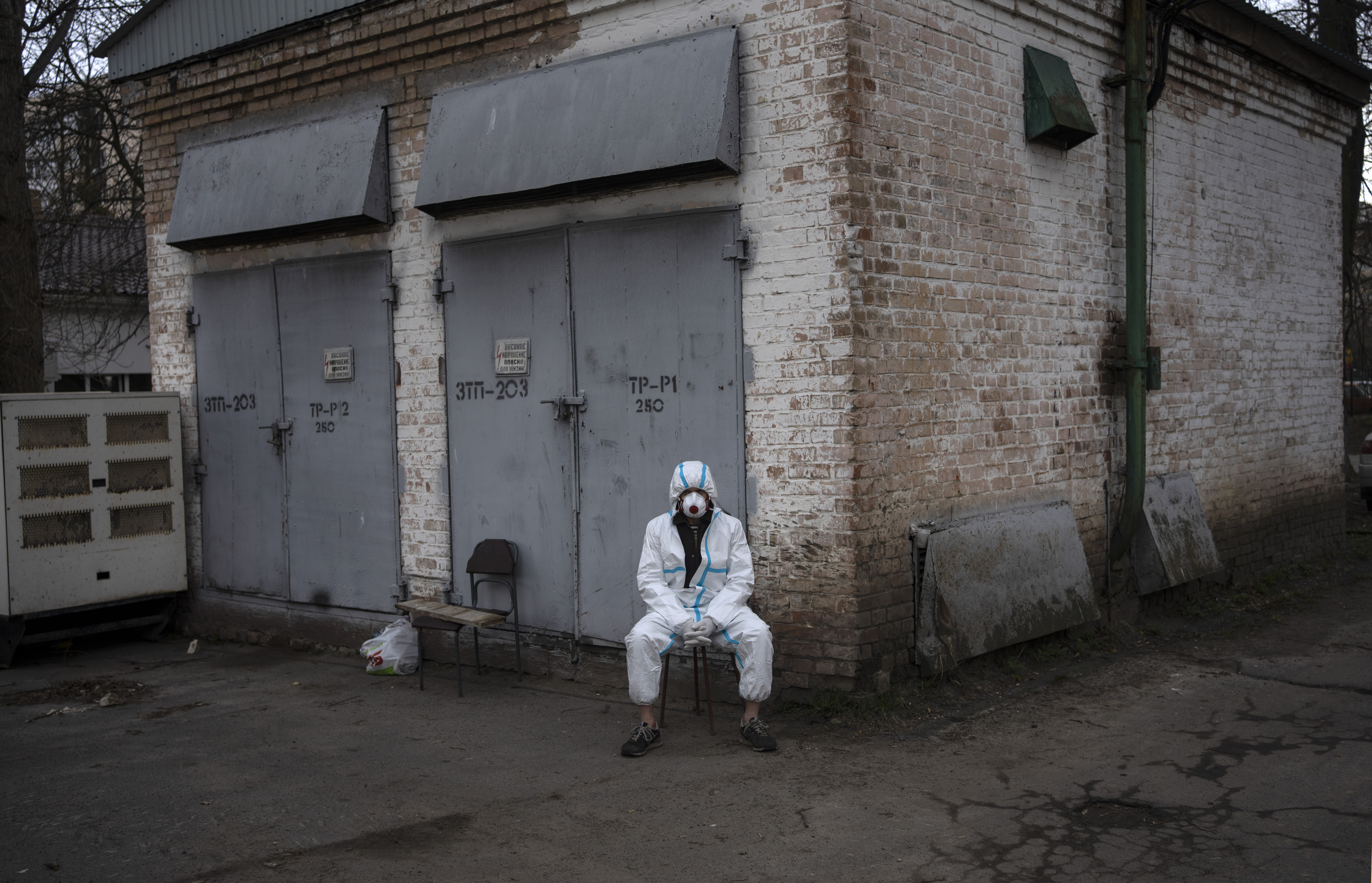
US President Joe Biden has described the atrocities in Ukraine as “genocide” for the first time, saying “it’s become clearer and clearer that (Russian President Vladimir) Putin is just trying to wipe out even the idea of being Ukrainian.”
French President Emmanuel Macron declined to refer to Russian actions in Ukraine as “genocide,” however, saying: “I would be careful with such terms today because these two peoples [Russians and Ukrainians] are brothers.”
Meanwhile, Ukrainian officials say nearly 200 children have been killed and more than 300 others injured since Russian’s invasion began.
Here are the latest developments on the war in Ukraine:
- Questions over chemical weapon use: Ukrainian President Volodymyr Zelensky said he cannot say with certainty if chemical weapons were used in the besieged city of Mariupol. His comments follow unverified reports of a possible such strike in the city. The US and the UK said they were working to verify the details but have not confirmed their use.
- Biden labels atrocities “genocide”: The US President said the atrocities being uncovered in Ukraine qualify as genocide, a designation he’d previously avoided but said he now believes is warranted as scenes of devastation emerge from towns previously overrun by Russian troops. It was a dramatic rhetorical escalation in the US view of what is happening on the ground and garnered near-immediate praise from Zelensky. The US government rarely uses the term genocide.
- Macron declines to use term “genocide”: In an interview with public broadcaster France 2, the French President rejected the use of the term “genocide” to describe Russian atrocities in Ukraine. “I want to continue to try, as much as I can, to stop this war and rebuild peace. I am not sure that an escalation of rhetoric serves that cause,” he said.
- Nearly 200 children killed in conflict: Some 191 children have been killed and 349 others injured in Ukraine since the start of the Russian invasion on February 24, Ukrainian prosecutors said in a news release on Wednesday. The burnt bodies of a 16-year-old girl and a 10-year-old boy were found in the villages of Borodianka, northwest of Kyiv, and Korolivka, in western Ukraine, the statement added.
- No evacuation routes opened: There will be no evacuation corridors for civilians in Ukraine on Wednesday, the country’s Deputy Prime Minister Iryna Vereshchuk said in a statement. Vereshchuk blamed Russian troops for creating a dangerous situation along the routes.
- Russia begins redeploying forces: Satellite images captured on Monday show Russian forces redeploying and moving into eastern Ukraine. The deployments consist of dozens of armored vehicles, troops with tents and support equipment, the images appear to show.
- Negotiations flounder: Putin said peace talks with Ukraine had hit “a dead end” and vowed he “will not stop military operations” until Moscow succeeds. He appeared next to his ally, Belarusian President Alexander Lukashenko. According to Zelensky, “negotiations are extremely difficult” but “they are ongoing.”
- Putin ally held: Viktor Medvedchuk, a pro-Russian Ukrainian politician and oligarch, has been detained in a “special operation,” Zelensky said. The President has proposed swapping Medvedchuk for captured Ukrainian prisoners of war. Prior to Russia’s invasion, Medvedchuk had faced allegations of treason in Ukraine.
- European presidents to meet Zelensky: The presidents of the Baltic states and Poland are on their way to the Ukrainian capital, Kyiv, to meet with Zelensky.
- New US military assistance: The US is expected to announce it is sending hundreds of millions of dollars in new military assistance to Ukraine soon, according to two sources familiar with the package. The final amount is expected to be close to $700 million.
- On the ground: The Ukrainian military reported heavy fighting in the southeastern region of Zaporizhzhia on Tuesday, saying a five-hour battle took place in the Polohy district as Ukrainian forces tried to liberate the area. Polohy is northeast of the Russian-occupied city of Melitopol. The Pentagon assesses that Mariupol remains contested amid Russia’s bombardment.
Russian Embassy in US says comments on possibility of Moscow using chemical weapons are “provocative”
From CNN’s Clare Sebastian and Sophie Jeong
The Russian Embassy in Washington said statements by US State Department spokesman Ned Price about the possibility of Russia using chemical weapons in Ukraine were “provocative” and “idle,” in comments posted on Facebook late Tuesday.
“We took note of the provocative statements made by Press Secretary of the U.S. Department of State Ned #Price at a briefing on April 12,” the embassy said.
“Ned Price once again distinguished himself by his idle talk, not substantiated by a single piece of evidence.”
The embassy said the Russian armed forces “do not and cannot have any chemical warfare agents at their disposal because our country eliminated all chemical weapons stockpiles back in 2017.”
“The information confirmed by the Russian Defence Ministry on the preparation of provocations by Ukrainian radicals with the use of chemicals is disturbing. We also have questions about the origin of these substances,” the embassy added.
The comments were in response to Price saying the US is “concerned” that Russia “may seek to resort to chemical weapons,” during a briefing on Tuesday.
Macron rejects use of the term “genocide” to describe Russian atrocities in Ukraine
From CNN’s Simon Bouvier in Paris
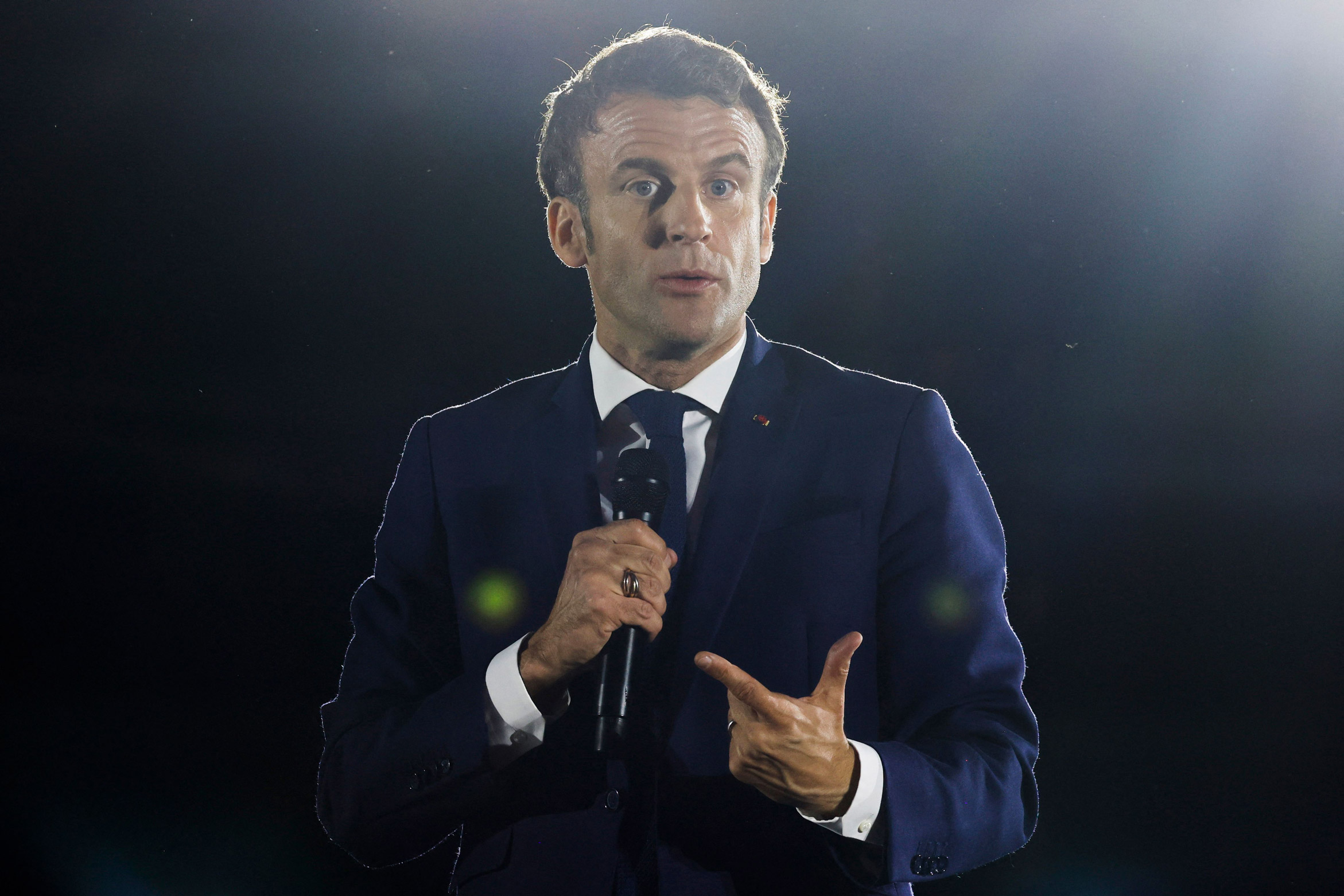
French President Emmanuel Macron refused to describe Russian actions in Ukraine as “genocide” in a television interview with public broadcaster France 2.
Asked whether he, like US President Joe Biden, would use the term “genocide” for the killing of Ukrainians by the Russian military, Macron said: “I would be careful with such terms today because these two peoples [Russians and Ukrainians] are brothers.”
“I want to continue to try, as much as I can, to stop this war and rebuild peace. I am not sure that an escalation of rhetoric serves that cause,” he added.
“What we can say for sure is that the situation is unacceptable and that these are war crimes. We are living through war crimes that are unprecedented on our soil — our European soil.”
The French President, who is currently running for re-election, also noted France’s cooperation with Ukraine to investigate the alleged war crimes.
“Russia has unilaterally started an extremely brutal war, it has now been established that the Russian army has committed war crimes and we must now find those who are responsible,” Macron said.
Some context: Biden said Tuesday the atrocities being uncovered in Ukraine qualify as genocide, saying “it’s become clearer and clearer that (Russian President Vladimir) Putin is just trying to wipe out even the idea of being Ukrainian.”
It was a dramatic rhetorical escalation in the US view of what is happening on the ground in Ukraine, which Biden has previously deemed war crimes.
The US designation does not carry any legal ramifications but does carry significant weight as Biden seeks to rally countries behind a strategy of isolating and punishing Moscow.
Other world leaders, such as the UK’s Boris Johnson and Poland’s Andrzej Duda, have also used the word “genocide” to describe Russian actions in Ukraine.
Source: https://www.cnn.com/europe/live-news/ukraine-russia-putin-news-04-13-22/h_d61360045ad6293283ce48e5e4af150c
















